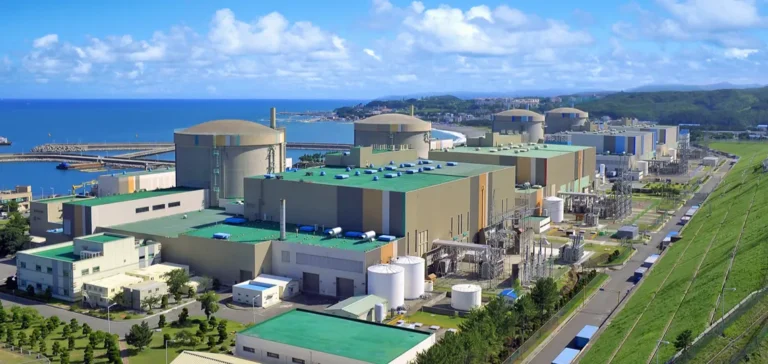South Korea is expected to increase its nuclear electricity production to 222.7 terawatt-hours (TWh) by 2035, based on annual growth projections of 2.4% between 2024 and 2035. This momentum relies on the addition of new reactors and a steady rise in installed capacity, set to reach 29.8 gigawatts (GW) by 2035, compared with 24.4GW in 2024.
Expansion of the nuclear fleet and national strategy
The country currently operates 25 nuclear reactors, with four additional units under construction. These investments are aligned with the roadmap of the Eleventh Basic Plan for Long-Term Electricity Supply and Demand, which calls for the commissioning of three additional reactors and one small modular reactor by 2038, bringing the total fleet to 29 units.
Nuclear power accounts for nearly one third of national electricity consumption. The expansion of the fleet aims to support an energy policy characterised by strong domestic demand and a reduction in dependence on fossil fuel imports, in the context of limited natural resources.
Export objectives and sector competitiveness
The South Korean strategy also includes an international dimension, as the country aims to become one of the leading global exporters of nuclear technology. The authorities intend to secure contracts for the construction of ten reactors overseas by 2030, thereby strengthening the sector’s industrial presence internationally.
According to Attaurrahman Ojindaram Saibasan, Senior Power Analyst at GlobalData, South Korea is among the world’s largest energy consumers and occupies a notable position in global greenhouse gas emissions. He stated that “the country’s dependence on thermal and nuclear energy remains significant, while the use of fossil fuels increases emissions and involves substantial import costs for coal and gas”.
The growth of South Korea’s nuclear sector is therefore part of a dual objective of securing national supply and capturing international markets, illustrating the country’s industrial strategy in a changing global energy environment.






















